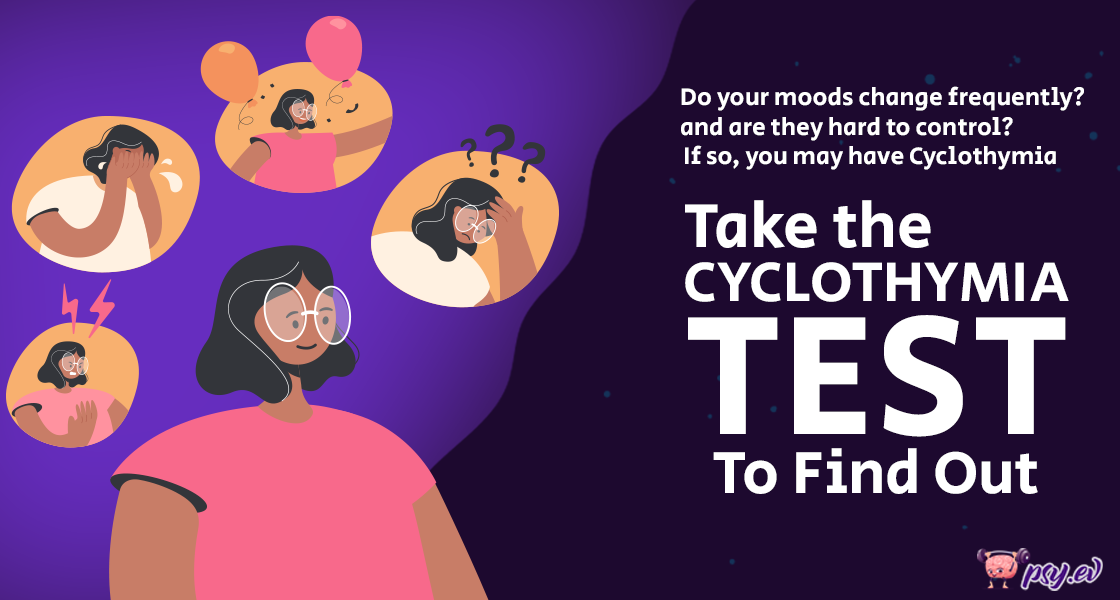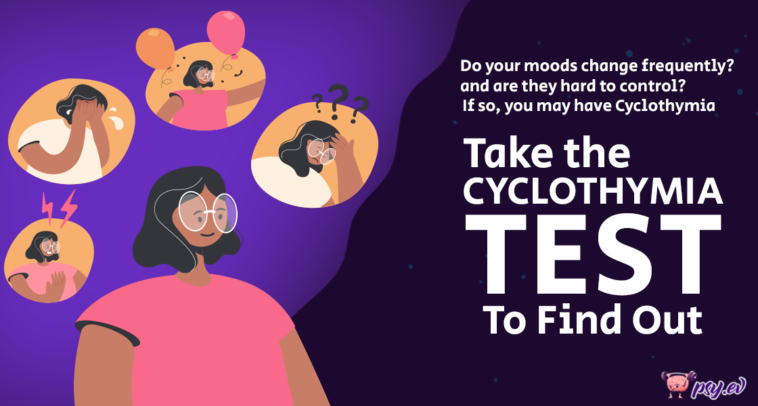Additionally, discussing treatment options with your doctor and therapist about your worries and suspicions is a good idea for further confirmation of the diagnosis.
Cyclothymia is curable. Once treated and no longer at the mercy of their moods, many individuals with this illness perform well and enjoy life considerably more. So take the test to see whether you suffer from this mental illness. The quiz consists of questions that address the primary cyclothymic disorder symptoms.
Cyclothymia: Signs and Causes
The first signs of cyclothymic disorder generally occur in adolescence or early adulthood. A milder version of bipolar disorder II, the cyclothymic disorder is characterized by emotional ups and downs. An individual with the cyclothymic disorder could feel fantastic one week and sad or depressed the next.
Some people's mood episodes have a variety of characteristics. When you have mixed characteristics, you could feel down but also agitated, energetic, or as though your mind is racing. Numerous patients with this diagnosis also have severe anxiety.
Without therapy, the intervals between these mood swings may seem good. However, as their symptoms worsen, individuals may struggle to control their emotions while juggling their obligations, relationships, and other factors.
The cyclothymic disorder has unidentified causes. It’s easy to confuse this mental condition as typical mood swings. Moreover, cyclothymia, bipolar illness, and major depression run in families. This may indicate that the etiology of various mood disorders is similar. However, a genetic connection in your family does not definitely guarantee that you will also have cyclothymic disease.
Moreover, being diagnosed with cyclothymia is also likely influenced by environmental variables. Specific life circumstances may increase the likelihood of developing cyclothymia. These include things like being physically abused, sexually abused, or other traumatic events.
The Next Steps
You could have cyclothymia if you frequently alternate between high and low moods or several emotional states. The cyclothymic disorder test can help individuals identify the disorder and benefit from further testing by a mental health professional by determining whether or not they could have cyclothymic disorder symptoms.
Assessments can be a helpful place to start when beginning therapy. People commonly feel their issues are not urgent or severe enough for professional attention. So they do not ask for help. For a thorough assessment, it is still imperative to seek expert assistance.
Even in the absence of symptoms, treatment is necessary to prevent recurrence. The most common treatment options for cyclothymic disorder are therapy, medication, and lifestyle changes. Medication and psychotherapy are frequently used to treat cyclothymia.
A mental health expert may determine your optimal course of treatment. Speaking with a psychologist or psychiatrist specializing in mental health is crucial.
Take the cyclothymia test and begin the journey of recovery.


